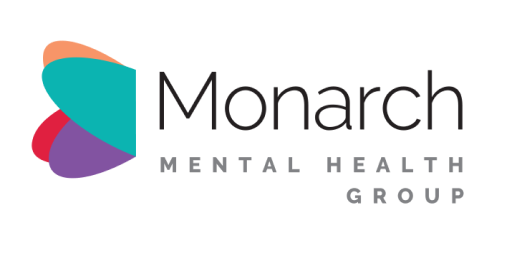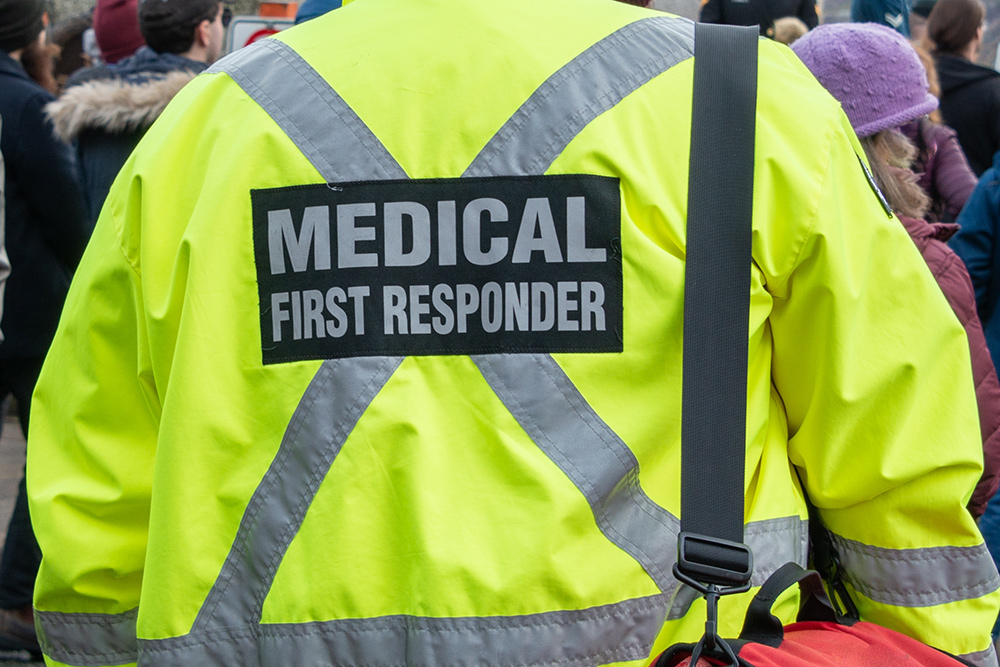First responders such as police officers, paramedics and firefighters face unique challenges that can affect their wellbeing. They often encounter traumatic events, long hours and high-pressure situations that few others will experience.
While their work saves lives and protects communities, it can also take a personal toll. Recognising and addressing these challenges through mental health support for first responders is essential, with families, friends and employers all playing an important role.
Why First Responders Face Distinct Mental Health Challenges
Research consistently shows that first responders are at higher risk of conditions such as depression, post-traumatic stress disorder (PTSD), anxiety and substance misuse. A 2021 study published in BMC Psychiatry found that first responders are more likely to experience symptoms of PTSD than the general population.
In Australia, Beyond Blue’s Answering the Call survey revealed that one in three police, ambulance and fire personnel experience high psychological distress.
The reasons are complex. Repeated exposure to trauma, unpredictable schedules, public scrutiny and physical risk all contribute. For firefighters, intense exposure to dangerous conditions and physical exhaustion add further stress.
Paramedics face high-stakes decision-making and frequent exposure to accidents and medical emergencies. Police officers may contend with community violence, critical incidents and organisational pressures. Together, these factors highlight why first responder mental health awareness is critical.
Recognising Early Warning Signs
Understanding the early warning signs of poor mental health is a vital step in providing effective support. Loved ones and colleagues may notice changes before the individual does. Common signs include:
- Withdrawal from family, friends, or colleagues
- Irritability, anger, or sudden mood swings
- Difficulty sleeping or reliance on alcohol to fall asleep
- Physical complaints such as headaches, digestive issues, or fatigue
- Loss of interest in activities they once enjoyed
- Difficulty concentrating or making decisions
Encouraging open conversations without judgment can help a first responder feel safe in acknowledging these struggles. It also creates a pathway toward accessing appropriate help.
Building a Supportive Environment at Work
Employers have a responsibility to create an environment where mental health is valued as much as physical safety. Practical steps include:
- Training managers and supervisors to identify and respond to signs of distress
- Normalising conversations about wellbeing and providing peer-support programs
- Offering regular psychological check-ins and access to confidential counselling
- Ensuring shift schedules allow for adequate rest and recovery
- Establishing clear policies that support early intervention and reduce stigma
Mental health support for paramedics, firefighters and police officers should be embedded into workplace culture, not treated as an afterthought. Strong organisational backing reassures staff that seeking help will not jeopardise their careers.
The Role of Families and Friends
Family and friends are often the first to notice when something is wrong. They play an important role in offering practical and emotional support. Some effective strategies include:
- Encouraging open communication: Ask how they are coping after a difficult shift and listen without trying to “fix” everything.
- Being patient: Trauma can take time to process. Avoid pushing them to talk before they are ready.
- Promoting balance: Encourage hobbies, physical activity and time away from work-related stressors.
- Learning the signs: Understanding the indicators of PTSD, anxiety, or depression helps families act early.
- Seeking support themselves: Caring for someone in a high-stress role can also take a toll. Family members may benefit from counselling or peer-support networks.
Supporting mental health in first responders often extends to supporting the wellbeing of their loved ones as well.

Professional Treatment Options
In Australia, there is a range of evidence-based treatments available to support first responders. Cognitive behavioural therapy (CBT), eye movement desensitisation and reprocessing (EMDR) and medication management are common approaches.
More recently, non-invasive brain stimulation therapies such as Transcranial Magnetic Stimulation (TMS) have shown promise for treatment-resistant depression and PTSD.
Specialised services like Monarch Mental Health Group provide personalised care, with psychiatrists, psychologists and nurses working together to deliver effective treatment. Importantly, these services understand the unique demands of emergency work and adapt care to meet the needs of firefighters, paramedics and police.
Practical Tips for Offering Support
Supporting a first responder requires a combination of empathy, awareness and action. Some practical strategies include:
- Respect confidentiality: If a first responder shares their struggles, keep that trust. Breaking it may prevent them from opening up again.
- Encourage professional help: Remind them that seeking support is a sign of strength, not weakness. Offer to help with appointments if needed.
- Model healthy coping: Engage in activities that reduce stress, such as exercise, mindfulness, or spending time outdoors and invite them to join.
- Stay consistent: Check in regularly, not just after major incidents. Consistent care builds trust and reduces feelings of isolation.
- Advocate for resources: Whether at a workplace or community level, support initiatives that expand access to counselling, therapy and peer-support programs.
Breaking Down Stigma
Stigma remains one of the biggest barriers to first responders seeking mental health support. Normalising conversations about mental health can help dismantle these concerns. Leaders who share their own experiences can also reduce stigma.
Community members can play a role as well. Showing appreciation for the work of firefighters, paramedics and police officers while acknowledging the pressures they face encourages a more compassionate culture. Public campaigns promoting first responder mental health awareness have already made progress, but continued effort is needed.
Moving Forward
First responders dedicate their lives to protecting others, often at great personal cost. Their mental health deserves equal attention to their physical safety. By increasing awareness, offering compassionate support and ensuring access to evidence-based treatment, families, workplaces, and communities can make a real difference.
Mental health support for first responders, including mental health support for firefighters and mental health support for paramedics, is not optional. It is an essential part of sustaining the people who sustain us.
If you or someone you know is a first responder struggling with mental health concerns, help is available. Monarch Mental Health Group provides assessment, therapy and advanced treatment options for first responders across multiple locations in Australia. Reaching out is the first step toward recovery.
FAQs
What treatments are effective for first responders in Australia with PTSD?
Treatments include trauma-focused cognitive behavioural therapy (CBT), eye movement desensitisation and reprocessing (EMDR) and medication management. For treatment-resistant cases, Transcranial Magnetic Stimulation (TMS) has shown strong outcomes for PTSD and depression. Monarch Mental Health Group offers these evidence-based therapies in accredited clinics, with psychiatrists and psychologists specialising in trauma recovery. By tailoring care to the needs of firefighters, paramedics and police, Monarch ensures treatment addresses both clinical symptoms and the unique pressures of emergency service work.
How can communities improve first responder mental health awareness?
Communities can foster awareness by recognising the emotional impact of emergency work, supporting public campaigns and encouraging open discussions about wellbeing. Reducing stigma around mental health helps first responders feel more comfortable seeking treatment. Schools, local organisations and community leaders can also provide education about the realities of emergency work. Monarch Mental Health Group actively supports first responder mental health awareness by offering professional treatment, research initiatives and accessible clinics across Australia.
What should first responders do if they feel overwhelmed?
First responders should reach out early for support rather than waiting until symptoms worsen. Speaking with a GP, psychologist, or psychiatrist is a good first step. Confidential services like those at Monarch Mental Health Group provide assessments, counselling and next-step treatments including TMS therapy and medication-assisted psychotherapy. If urgent, they should contact Lifeline or Beyond Blue. For non-emergency support, Monarch offers tailored mental health support for first responders at clinics in Sydney, Melbourne and Brisbane. Contact us today for more information.
How can a mental health clinic support first responders in Australia?
Monarch Mental Health Group provides comprehensive, psychiatrist-led care for firefighters, paramedics and police officers. Services include assessments, psychological therapy, medication review and innovative treatments like TMS and tDCS. With clinics across New South Wales, Queensland and Victoria, Monarch ensures accessible care for first responders and their families. Our teams work collaboratively, using data-driven approaches to achieve better outcomes. If you or a loved one needs mental health support for first responders, contact us today.
Can first responders access Medicare rebates for mental health treatment?
Yes. With a referral from a GP or psychiatrist and a Mental Health Care Plan, first responders can access Medicare rebates for therapy sessions and psychiatric consultations. This makes mental health support for first responders more affordable and accessible. Monarch Mental Health Group works closely with GPs and referrers to streamline the process and ensure first responders get timely, professional care at our accredited clinics across New South Wales, Queensland and Victoria.
.png)
About The Author
Dr Ted Cassidy
Dr. Ted Cassidy is a psychiatrist and co-founder of Monarch Mental Health Group in Australia, which provides innovative treatments for depression, PTSD, and anxiety. Monarch Mental Health is recognized as Australia's first outpatient clinic offering assisted therapy and is the largest provider of outpatient magnetic stimulation therapy.

